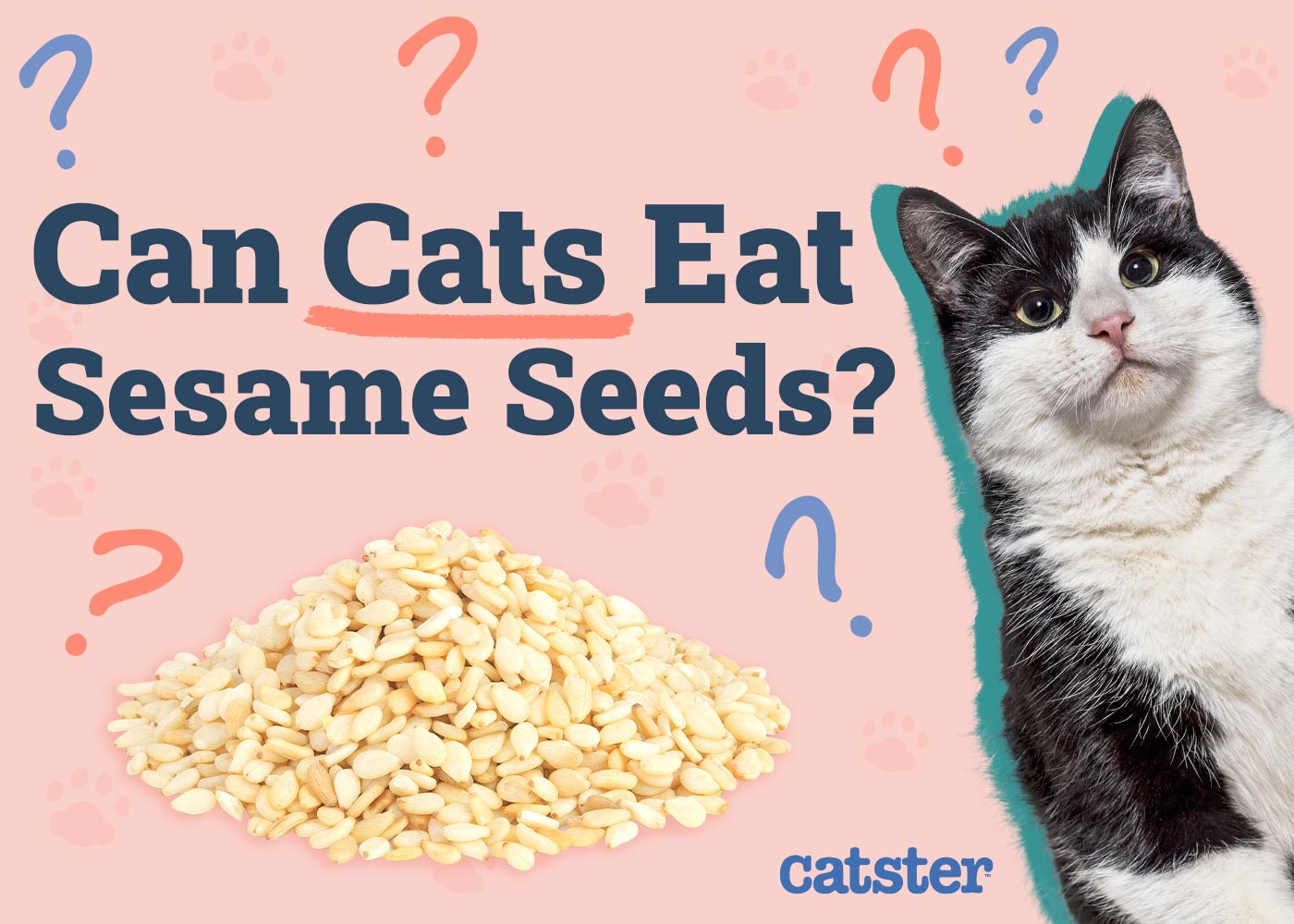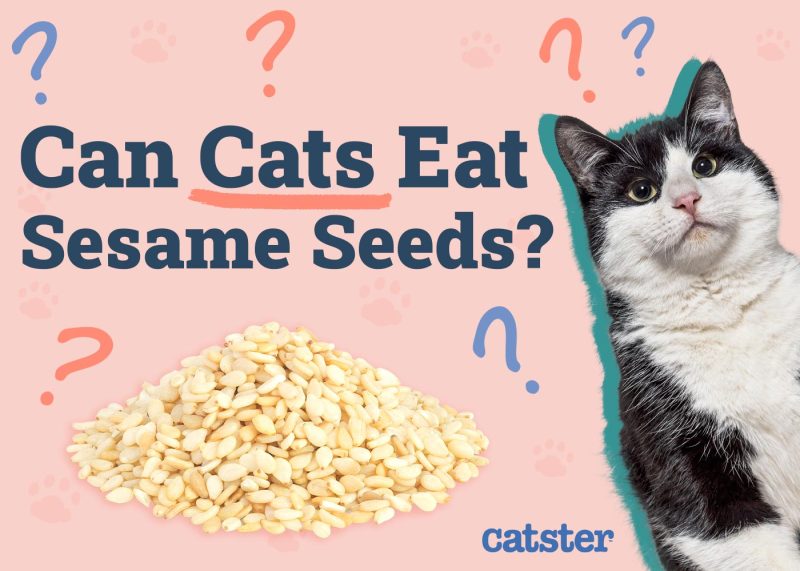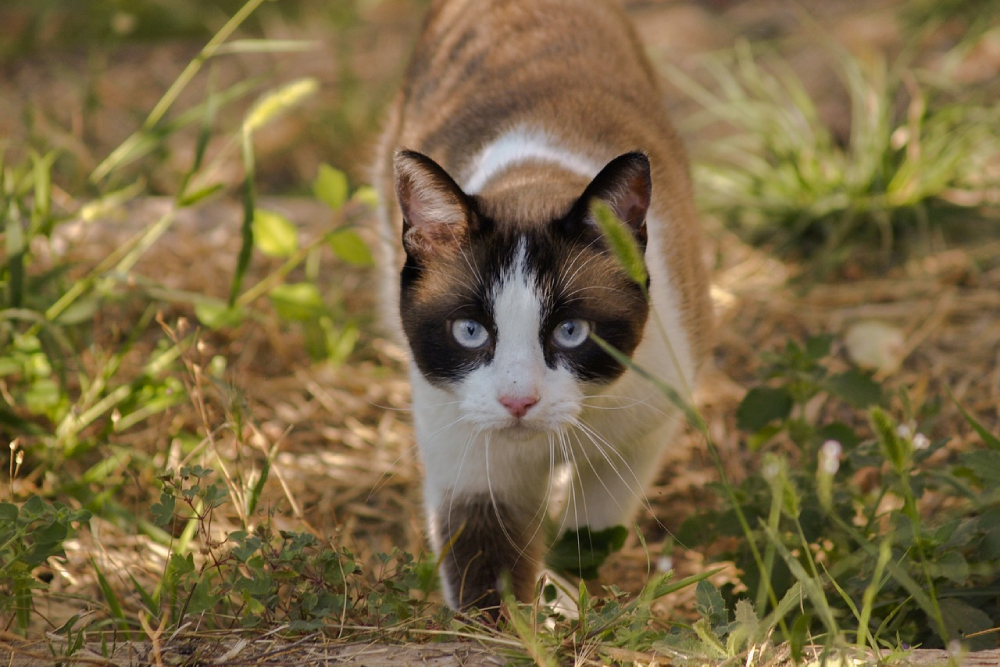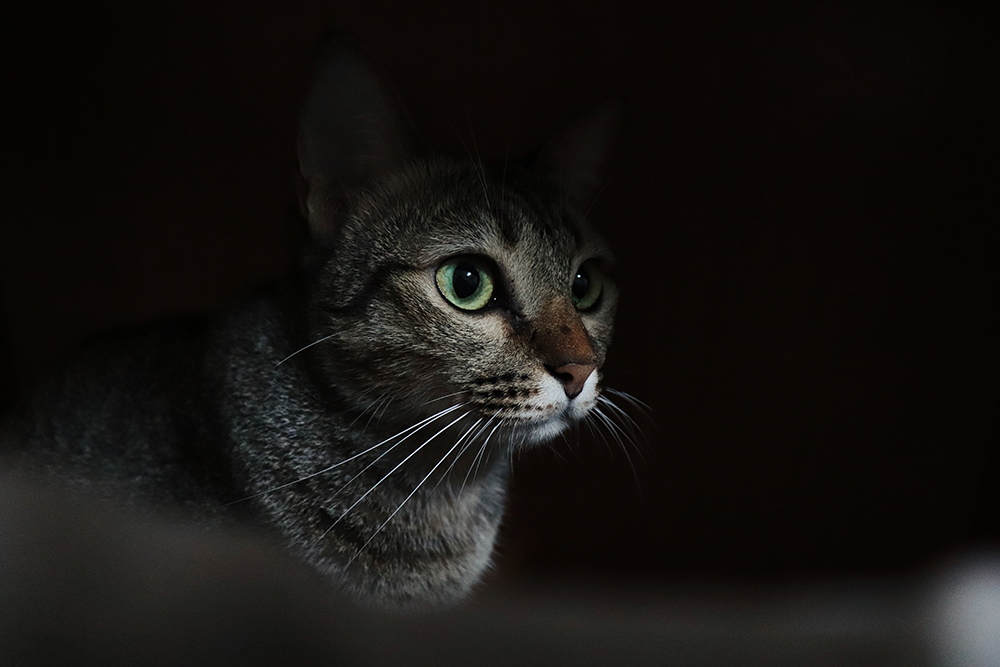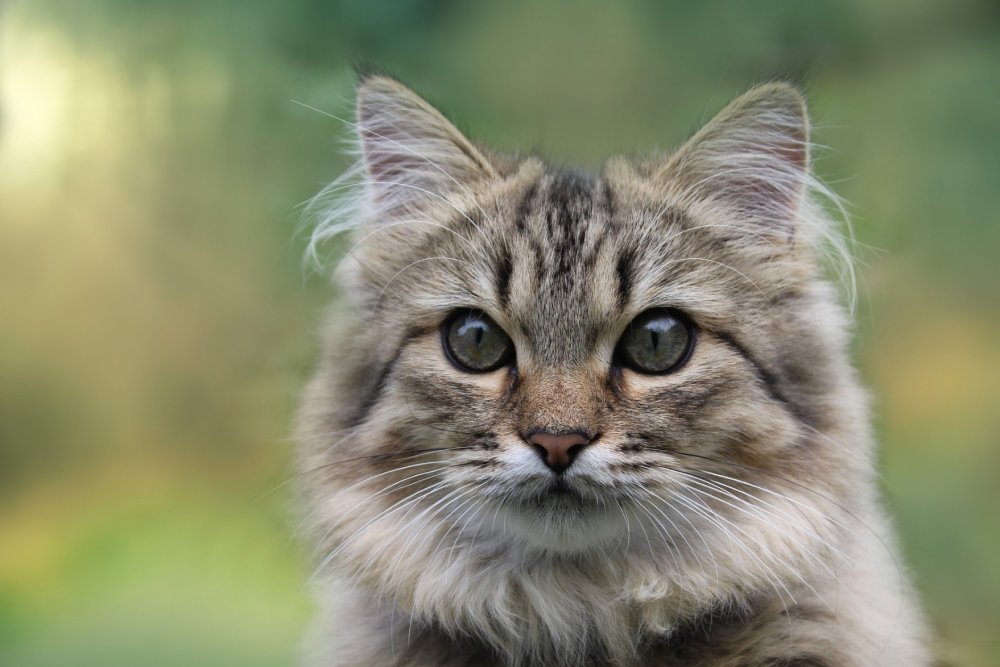Sesame seeds are fairly nutritious for humans and many other omnivores. However, they’re not necessarily the healthiest snack for cats. Although sesame seeds don’t contain any toxic or harmful properties, they are not a food that’s easily digestible for cats.
If your cat sneaks a bite from a hamburger bun with sesame seeds while you aren’t looking, you don’t have to worry too much, but we don’t recommend encouraging your felines to eat them, either. Let’s get into why that is.
Nutritional Benefits of Sesame Seeds
In general, sesame seeds are nutritious. They contain several vitamins and minerals, such as vitamin B6, vitamin E, copper, iron, selenium, and zinc, that can boost and support the immune system. Other nutrients found in sesame seeds can help improve bone health and reduce inflammation. They also contain antioxidants that can help fight oxidative stress.
The macronutrient makeup of a sesame seed also closely matches the needs of a cat. Sesame seeds are low in carbohydrates, contain a good amount of healthy fats, and are high in plant protein.
Cats need and thrive off diets that are packed with protein and have a moderate amount of fats. They also can’t process carbohydrates very well, so they don’t need a lot of them in their daily diet.
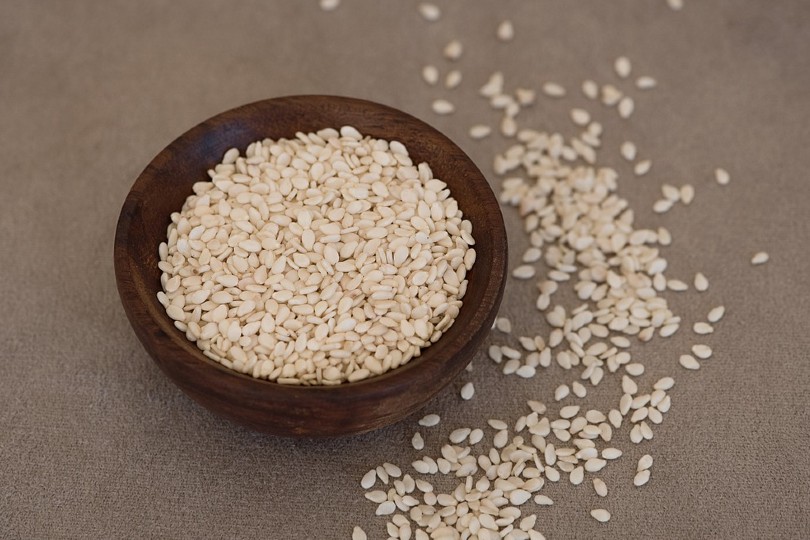
Are Sesame Seeds Healthy for Cats?
With all the potential benefits that sesame seeds can bring, it can seem like a no-brainer to start feeding your cat this nutrient-packed seed. However, the answer isn’t quite so simple.
Cats are obligate carnivores, meaning they mainly get their nutrients from meat protein. Obligate carnivores also can’t digest plants efficiently and get all the nutrients that they need from them.
Therefore, sesame seeds actually aren’t as nutritious to cats as they may be to omnivores like humans and dogs.

A Cat’s Basic Dietary Needs
As mentioned previously, cats rely on a protein-heavy diet sourced from animal meat. Along with moderate amounts of fat, cats also have essential vitamins and minerals that they need to consume for daily bodily functioning. Here’s a breakdown of what this all means:
Protein
Cats can’t synthesize some amino acids on their own, so they are termed essential, meaning they must be provided by food. They have to obtain pre-existing amino acids found in animal tissue. Two specific essential amino acids that they can’t produce on their own are taurine and arginine, there are 11 essential amino acids for cats.
Cats need adequate amounts of taurine throughout their whole lifetime. Taurine plays a role in a kitten’s growth and development, and it’s also necessary for healthy eyes and heart. Cats that have a taurine deficiency will inevitably develop feline central retinal degeneration (FCRD) or dilated cardiomyopathy (DCM).
If these illnesses are caught in the early stages, they can sometimes be reversed with taurine supplements. However, the later stages of these diseases can leave permanent damage, sight loss, and heart failure.
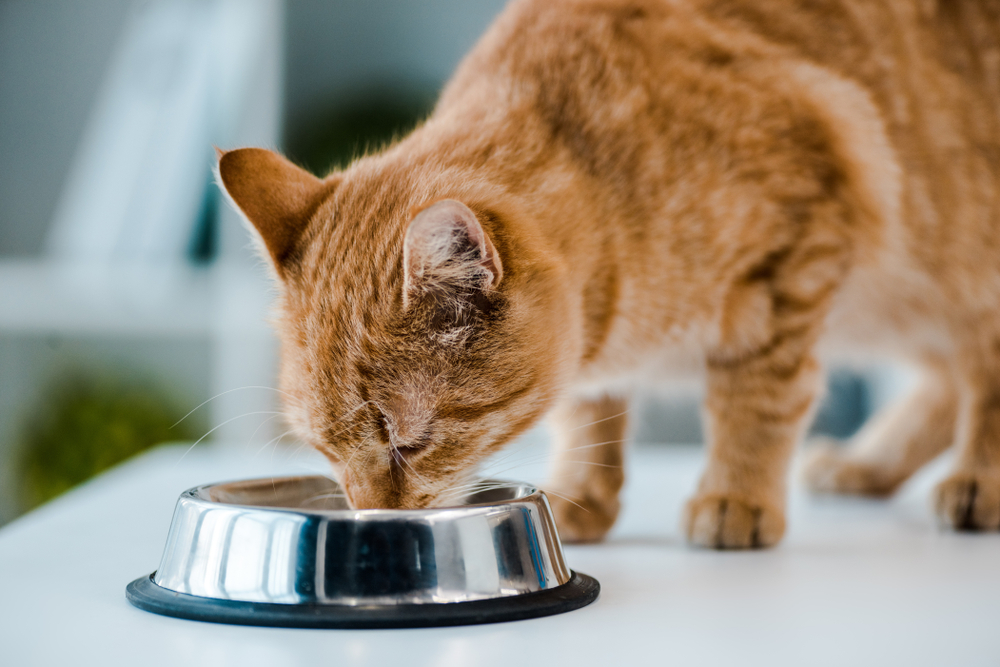
Fats
Cats need a good amount of healthy fats in their diet and generally need a diet consisting of between 20% to 24% fat. They use fat as an energy source, and fats also carry certain soluble vitamins.
Cats need to eat high-quality fat-containing essential fatty acids, such as omega-3 and omega-6 fatty acids. These fatty acids help support various parts of a cat’s health, skin and coat, eyes, and cognitive functioning.
Vitamins and Minerals
The Association of American Feed Control Officials (AAFCO) lays out essential vitamins and minerals that cat food should contain.
- Vitamin A
- Vitamin D
- Vitamin E
- Vitamin K
- Thiamine
- Riboflavin
- Pantothenic acid
- Niacin
- Pyridoxine
- Folic acid
- Biotin
- Vitamin B12
- Choline
- Calcium
- Phosphorus
- Potassium
- Sodium
- Chloride
- Magnesium
- Iron
- Copper
- Manganese
- Zinc
- Iodine
- Selenium
If you’re ever uncertain or have doubts about the best food for your cat, your vet is the best person to ask. They’ll be able to recommend brands they trust and consider best for your cat’s needs.

If you need to speak with a vet but can’t get to one, head over to PangoVet. It’s an online service where you can talk to a vet online and get the personalized advice you need for your pet — all at an affordable price!
Final Thoughts
Overall, it’s not too big of a deal if your cat eats some sesame seeds because they’re not toxic to cats. However, they aren’t the most nutritious snacks to give to your cat and should be avoided.
If your cat enjoys eating sesame seeds, you can give your cat a small amount. Just keep in mind that there could be better snack options, like catnip or a meat-based treat.
- See Also: Can Cats Eat Poppy Seeds?
Featured Image Credit: TheUjulala, Pixabay

